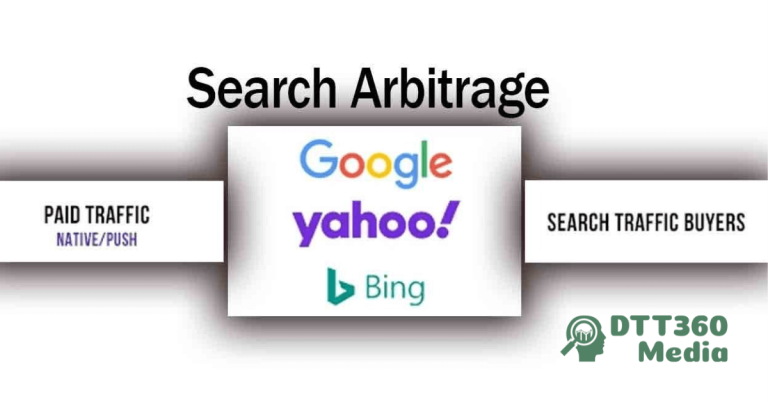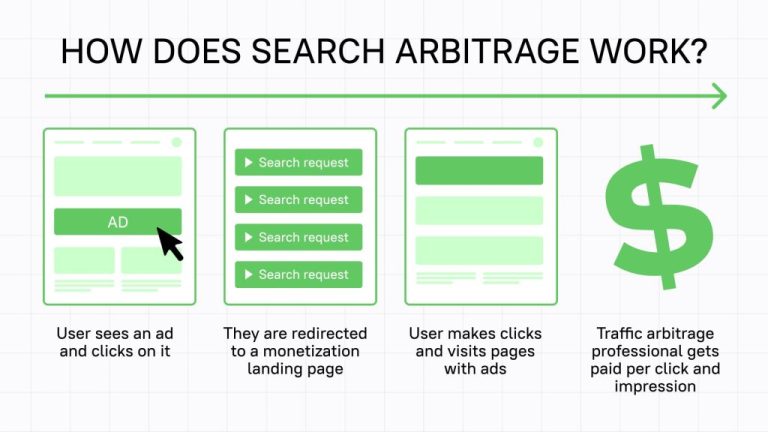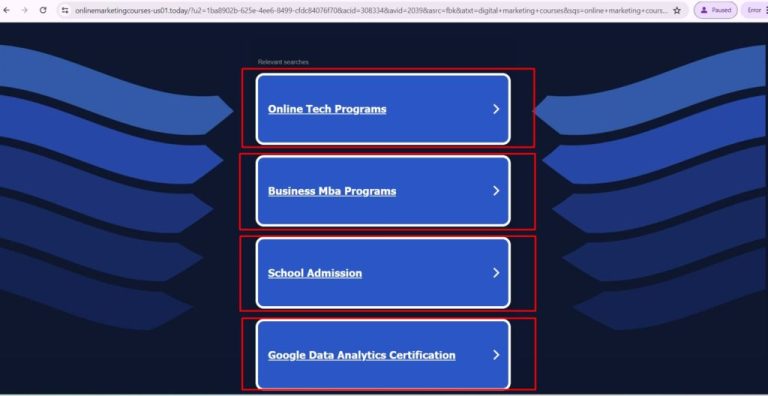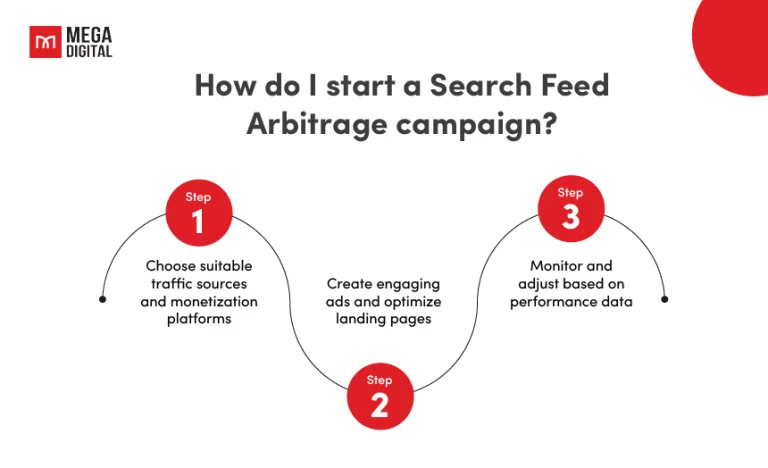Search Arbitrage Providers
Ever wondered why some search results seem almost too well-tailored to your needs? It’s intriguing how search arbitrage providers have turned the art of navigating digital landscapes into a lucrative business model. These providers capitalize on the difference between the cost of paid search and the revenue generated from search ads, offering a unique perspective on the dynamics of digital marketing.
Search arbitrage has roots that stretch back to the early days of online advertising. By leveraging the power of low-cost search traffic and high-yield ad placements, providers drive an impressive increase in ad revenue. For instance, reports suggest an average yield enhancement of around 30% when cleverly executed. Such strategies highlight how search arbitrage remains a potent tool in the expert digital marketer’s repertoire.

Defining Search Arbitrage
Search arbitrage is a nifty way of making money online. It involves buying cheap internet traffic and selling it at a higher price. It’s like buying a product at a discount and selling it for more to earn a profit. Companies that use search arbitrage analyze search trends and identify which keywords are cheaper to target. This helps them capture low-cost traffic and redirect it to higher-paying advertisements.
The concept of arbitrage has been around for ages in various markets, not just online. With search arbitrage, it’s all about playing the game of search engine advertising. Advertisers bid on specific keywords to display their ads in search results. When a user clicks, the advertiser makes money. The key is to find a balance where the cost per click is lower than the earnings from that click.
In simpler terms, think of it as buying a pack of candy to sell each piece for more than you paid for the pack. It might seem simple, but it requires keen insight into market trends and consumer behavior. Experts often use advanced tools and analytics to predict which keywords will yield the best returns. This can be a fun and challenging puzzle to solve.
To break it down, here are some essentials to consider in search arbitrage:
- Identifying profitable keywords
- Understanding search trends
- Analyzing traffic costs vs. revenue potential
The Dynamics of Search Arbitrage
Search arbitrage operates in an ever-changing digital landscape. The key is understanding how to balance the cost of acquiring traffic and the potential revenue it generates. This requires continuous monitoring of search engine algorithms and market trends. Providers use sophisticated software tools to track and predict changes in keyword pricing. It’s a dynamic process that tests both strategy and adaptability.
The competition within search arbitrage can be fierce. Many companies are vying for profitable keywords, making the market highly competitive. To stand out, participants need a unique approach and savvy marketing tactics. They might focus on niche search terms that others overlook. This offers a competitive edge by capturing targeted traffic at lower costs.
Effective search arbitrage relies heavily on data analysis. Companies need to invest in analytics to make informed decisions. They constantly analyze what works and what doesn’t. This means keeping tabs on click-through rates, conversion rates, and the overall profitability of each campaign. Data drives success in this arena.
Understanding the dynamics involves keeping an eye on the following elements:
- Market trends
- Keyword competition
- Revenue per click
- Traffic sources
The Role of Search Arbitrage Providers
Search arbitrage providers play a critical role in the digital marketing ecosystem. They serve as intermediaries, connecting advertisers with the right audience by buying and rerouting search traffic. Their expertise in identifying profitable keywords helps advertisers increase their reach. Providers also offer valuable insights into market trends and keyword performance. This knowledge allows businesses to optimize their marketing strategies for better results.
Providers manage complex ad campaigns with precision. They utilize advanced software and algorithms to analyze search data and optimize ad placements. This ensures that advertisers get the most value for their investment. Quality traffic increases the chances of conversions, leading to higher revenue. Providers continuously tweak strategies to align with ever-changing market dynamics.
Furthermore, search arbitrage providers help businesses navigate the crowded digital market. With their expertise, even small businesses can compete with larger players. They create customized strategies tailored to specific business goals and budgets. Providers also monitor the industry’s pulse, adapting swiftly to changes in consumer behavior and search engine updates. This flexibility ensures their client stays ahead of the curve.
Here are some primary services offered by search arbitrage providers:
- Traffic acquisition and management
- Keyword analysis
- Ad campaign optimization
- Performance tracking and reporting
Profitability and Business Model of Search Arbitrage Providers
Search arbitrage providers thrive on the principle of buying low and selling high. Their profitability hinges on acquiring search traffic at a lower cost and selling ad placements at a higher rate. By expertly navigating the landscape of keyword prices, they can maximize margins. This business model mirrors traditional arbitrage tactics found in financial markets. The key is to maintain a keen eye on market fluctuations and consumer behavior.
These providers often use a mix of strategies to boost profitability. They invest in data analytics and predictive modeling to forecast keyword trends. Such tools allow them to act swiftly, even as the digital environment shifts. Providers also develop partnerships with ad networks to secure better rates. This network of connections enhances their purchasing power in the market.
A well-structured business model is essential for sustainability. Providers often structure their operations around core components. These include traffic sourcing, cost management, and revenue optimization. Each component requires targeted strategies to ensure it supports the overall goal. Balancing these elements effectively contributes directly to profitability.
Here’s a quick glance at typical revenue streams for search arbitrage providers:
- Direct ad sales
- Affiliate marketing
- Pay-per-click (PPC) ads
- Partnership deals
Success in this field relies heavily on continuous learning and adaptation. Providers must consistently update their methods to keep up with search engine updates and advertising regulations. They embrace a culture of innovation to remain competitive. By doing so, they capture opportunities that others might miss. This proactive approach to problem-solving is crucial for long-term success.
Influence of Search Arbitrage Providers on Digital Advertising
Search arbitrage providers have significantly shaped the landscape of digital advertising. By driving targeted traffic, they help businesses reach potential customers more effectively. They broaden the reach of digital marketing campaigns, making it easier for brands to gain visibility. Through their efforts, advertisers can better allocate resources to high-performing keywords. This not only boosts ad efficiency but also enhances return on investment.
Providers impact ad pricing dynamics as well. As they bid on keywords, they contribute to fluctuations in keyword pricing. This affects how other businesses approach their advertising strategies. Understanding these shifts allows companies to stay competitive. With strategic insights, advertisers can adjust bids to enhance cost-effectiveness.
Search arbitrage providers also play a role in promoting innovation within the industry. They constantly seek new ways to optimize ad placements and boost click-through rates. This competitive drive encourages technological advancements in analytics and ad targeting tools. Advertisers benefit from improved accuracy and precision in their campaigns. This ongoing push for innovation keeps the digital advertising realm dynamic.
Their influence can be seen in several critical areas:
- Keyword bidding strategies
- Ad placement optimization
- Enhanced targeting techniques
- Data-driven decision making
Lastly, these providers help democratize digital advertising. By lowering entry barriers, they allow smaller businesses to compete with larger entities. Sourcing traffic at more affordable rates enables a broader range of businesses to engage in online marketing. This levels the playing field and fosters a more diverse advertising environment. It ultimately enriches the digital ecosystem.
Key Takeaways
- Search arbitrage providers buy low-cost traffic to sell high-value ads.
- They help advertisers maximize returns by analyzing keyword trends.
- Their strategies optimize digital marketing and expand advertiser reach.
- Providers enhance campaign efficiency while driving revenue growth.
- This role is crucial for a competitive edge in digital advertising.
Frequently Asked Questions
Delving into topics involving search arbitrage can sometimes get tricky. Here, we’ll address some common queries to give you a better understanding.
1. How do search arbitrage providers affect online ad costs?
Search arbitrage providers influence online ad costs mainly through keyword bidding. When they bid on certain keywords, it can lead to fluctuations in the price of these keywords. This bidding process can make it more challenging for businesses to maintain low ad costs without strategic planning. However, understanding their patterns can give companies a predictive edge.
By analyzing market behavior, businesses can adapt efficiently to these changes. They can adjust their budgets and strategies accordingly, optimizing their ad spend. This helps them make informed decisions, avoiding unnecessary expenses while maximizing the benefit of their campaigns. Essentially, it’s about staying one step ahead in a competitive advertising market.
2. What tools are used by search arbitrage providers for efficiency?
Search arbitrage providers use various advanced software tools to enhance efficiency. These tools can include analytics platforms, keyword research tools, and predictive modeling software. They help providers identify the best keywords and strategies for traffic acquisition and ad placement. Such tools are crucial for maintaining a competitive advantage.
By leveraging these technologies, providers increase their precision when targeting specific demographics. This results in better traffic management and revenue optimization. Moreover, by staying on top of trends, providers can quickly adapt to changes. Using these tools ensures that their strategies remain effective and responsive to shifting market dynamics.
3. Why is continuous learning important for search arbitrage providers?
Continuous learning is vital for search arbitrage providers due to the ever-evolving nature of technology and consumer habits. As search engines update algorithms, providers must adapt to these changes to maintain relevance in the market. By staying informed, they can refine strategies and remain competitive. This ability to learn and adapt is a significant asset in a fast-paced industry.
Moreover, keeping up with the latest trends and tools can provide new opportunities for optimization. Providers can experiment with new methods and find innovative ways to boost performance. Those who embrace learning are more likely to succeed, as they can quickly adjust to any challenges or opportunities that arise. Continuous learning ensures they stay at the forefront of their field.
4. How do search arbitrage providers shape digital marketing strategies?
Search arbitrage providers significantly influence digital marketing strategies by offering data-driven insights. Their ability to analyze keyword performance helps businesses optimize their campaigns for better results. With accurate traffic analytics, companies can focus on high-performing areas. This leads to more efficient marketing expenditures and increased return on investment.
Additionally, their strategies often highlight overlooked opportunities in niche markets. By targeting specific keywords that others may ignore, they can tap into new customer bases. This innovation helps businesses differentiate themselves from competitors. By partnering with search arbitrage providers, companies benefit from tailored strategies that drive success.
5. What challenges do small businesses face with search arbitrage?
Small businesses may struggle with search arbitrage due to limited resources and expertise. Competing against larger companies with bigger budgets can be daunting. Yet, understanding the process equips businesses to make smarter decisions. Small enterprises must invest in learning and adapt quickly to shifting market conditions.
However, partnering with experienced providers can bridge this gap. Providers help level the playing field by offering solutions suited to smaller budgets. This support enables small businesses to compete more effectively. By embracing strategic partnerships, they can overcome challenges and thrive in competitive digital spaces.
Wrapping Up Our Discussion
Search arbitrage providers play a vital role in the digital advertising ecosystem. Their unique ability to balance cost and return can transform your marketing strategy. By understanding their methods, you gain a powerful ally in maximizing ad efficiency and reach.
Staying informed and adaptable is key to leveraging these opportunities. Whether you’re a small business or a large corporation, these insights can enhance your competitive edge. Embracing innovation and continuous learning will ensure you remain ahead in this dynamic field.






